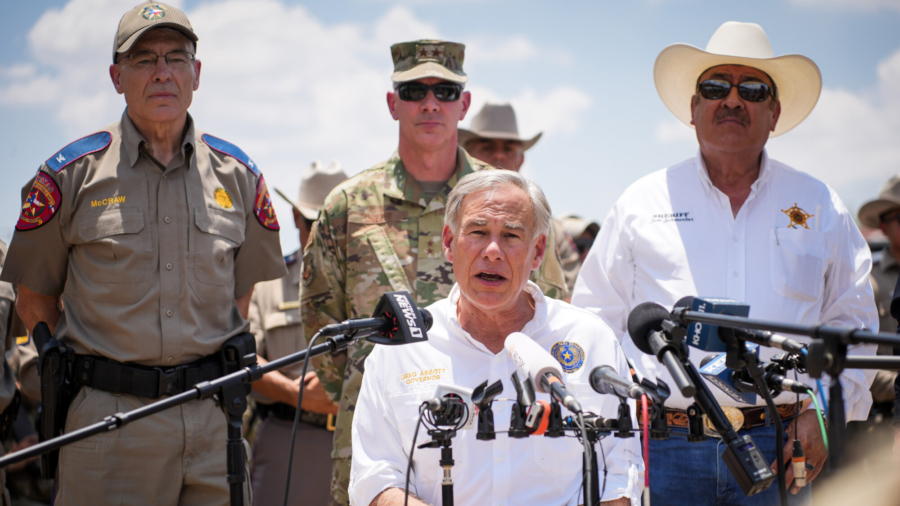Republican Texas Gov. Greg Abbott signed a raft of border security bills on Thursday, including a bill designating drug cartels as terrorist organizations.
Last September, Abbott issued an executive order to designate drug cartels as terrorist organizations and direct resources to counter these groups. The bill Abbott signed on Thursday, SB 1900, expands his prior executive order into law. Republican Texas state Senator Brian Birdwell and Republican Rep. Ryan Guillen coauthored SB 1900.
The newly signed bill imposes increased legal penalties for those found to be operating cartel stash houses or destroying illegal drug stashes. Local authorities will also be able to seek public nuisance claims against the cartels.
“This is a significant milestone that enables us to effectively address the threat posed by cartels by designating them as foreign terrorist organizations,” Guillen said Thursday. “With the passage of SB 1900, we now have provisions in place to establish measures to combat their criminal activities.”
SB 1900 also directs information about designated foreign terrorist organizations to be included in the state’s existing criminal intelligence databases. Abbott designated the Sinaloa Cartel and the Jalisco New Generation Cartel as foreign terrorist organizations in his September executive order and said other Mexican drug cartels might be designated in future proclamations.
According to a January 2020 report (pdf) by the U.S. Drug Enforcement Administration (DEA), the Sinaloa and Jalisco New Generation Cartels “are likely the primary trafficking groups responsible for smuggling fentanyl into the United States from Mexico.” Fentanyl is a powerful opioid. The drug’s potency makes it a popular adulterant in other drug substances but also increases the potential for potentially deadly overdoses.
“Today, public enemy number one is the Mexican cartels, and they impact every community in Texas and the United States,” Texas Department of Public Safety Director Steve McCraw said during the bill signing ceremony. “Our mission is to detect and interdict transitional criminal activity and create proactive strategies to combat it. It’s dangerous to cross between ports of entry, and securing the border between them is ideal to fight Mexican cartels.”
Several Republican politicians have called for treating drug cartels as terrorist organizations. After signing his executive order in September, Abbott urged President Joe Biden to take similar action at the federal level to label the cartels as terrorist groups.
More Border Control Measures
Abbott signed another five border security measures into law on Thursday in addition to the bill to go after the cartels.
Among the bills Abbott signed on Thursday, one creates a grant program to compensate agricultural landowners up to $75,000 for property damage caused by trespassers committing a border crime. This can include compensation for damages caused by illegal border crossings and cross-border smuggling operations.
Another bill grants U.S. Border Patrol Agents who have undergone Texas Department of Public Safety (DPS) training the authority to make arrests for violation of Texas state laws. Another bill establishes a training program for Texas DPS to train local law enforcement officers in “identifying and preventing of transnational criminal activity.”
Yet another bill Abbott signed gives him the ability to coordinate an interstate compact, enabling out-of-state law enforcement agencies to share
Another bill Abbott signed authorized the Texas National Guard to use unmanned aircraft to surveil the border as part of Operation Lone Star. Texas’ Operation Lone Star is an ongoing effort involving National Guard troops from Texas and several other states to secure sections of the Texas border.
Along with the bills, Abbott announced the deployment of a 1,000-foot-long floating barrier in the Rio Grande, a waterway serving as a dividing line between Texas and Mexico. Abbott said the floating barrier is meant to provide an extra layer of difficulty to people attempting to cross the river into the U.S.

